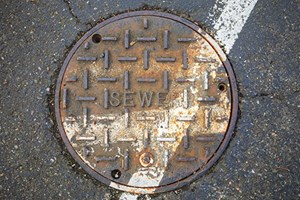Sewers to play key role in low-carbon heat project for London’s Westminster area
(UI) — The UK government is advancing plans to heat notable London sites, including the U.K. Parliament, by harnessing low-carbon energy from unique sources such as the River Thames, the London Underground, and even the city’s sewer systems, according to Tech Xplore.
This initiative could serve roughly 1,000 buildings, bringing renewable warmth to central London. The project, part of a larger effort to establish the U.K.’s most extensive heat network, aims to capture and distribute waste heat for hot water and heating in Westminster, the area housing Parliament. The network would utilize a series of pipes to circulate this excess heat, potentially reducing the need for individual air-source heat pumps in each building, making it a cost-effective decarbonization strategy.
Westminster Council and the Department for Energy Security and Net Zero (DESNZ) are jointly spearheading the £1.0 billion ($1.3 billion) project. This infrastructure will redirect waste heat within a small, localized network, marking a significant shift towards sustainable energy in the area.
Heat networks like this are expected to become key players in the UK’s energy landscape as the government moves to end fossil fuel reliance by 2030.
DESNZ Minister Miatta Fahnbulleh told Tech Xplore that this project is just one of seven such networks supported by more than £5 million in government funding, with the goal of enhancing energy security and reducing carbon emissions.
The construction of the South Westminster Area Network (SWAN), which will serve as the heat distribution hub for this initiative, is expected to start in 2026.
Related News
From Archive

- Glenfarne Alaska LNG targets late-2026 construction start for 807-mile pipeline project
- U.S. water reuse boom to fuel $47 billion in infrastructure spending through 2035
- $2.3 billion approved to construct 236-mile Texas-to-Gulf gas pipeline
- Major water pipe break in Puerto Rico hits over 165,000 customers
- Potomac River Tunnel project enters construction phase beneath Washington, D.C.
- Pennsylvania American Water launches interactive map to identify, replace lead water service lines
- Trump's tariffs drive $33 million cost increase for Cincinnati sewer project
- Utah city launches historic $70 million tunnel project using box jacking under active rail line
- Tulsa residents warned after sewer lines damaged by boring work
- Fatal trench collapse halts sewer construction in Massachusetts; two workers hospitalized




Comments